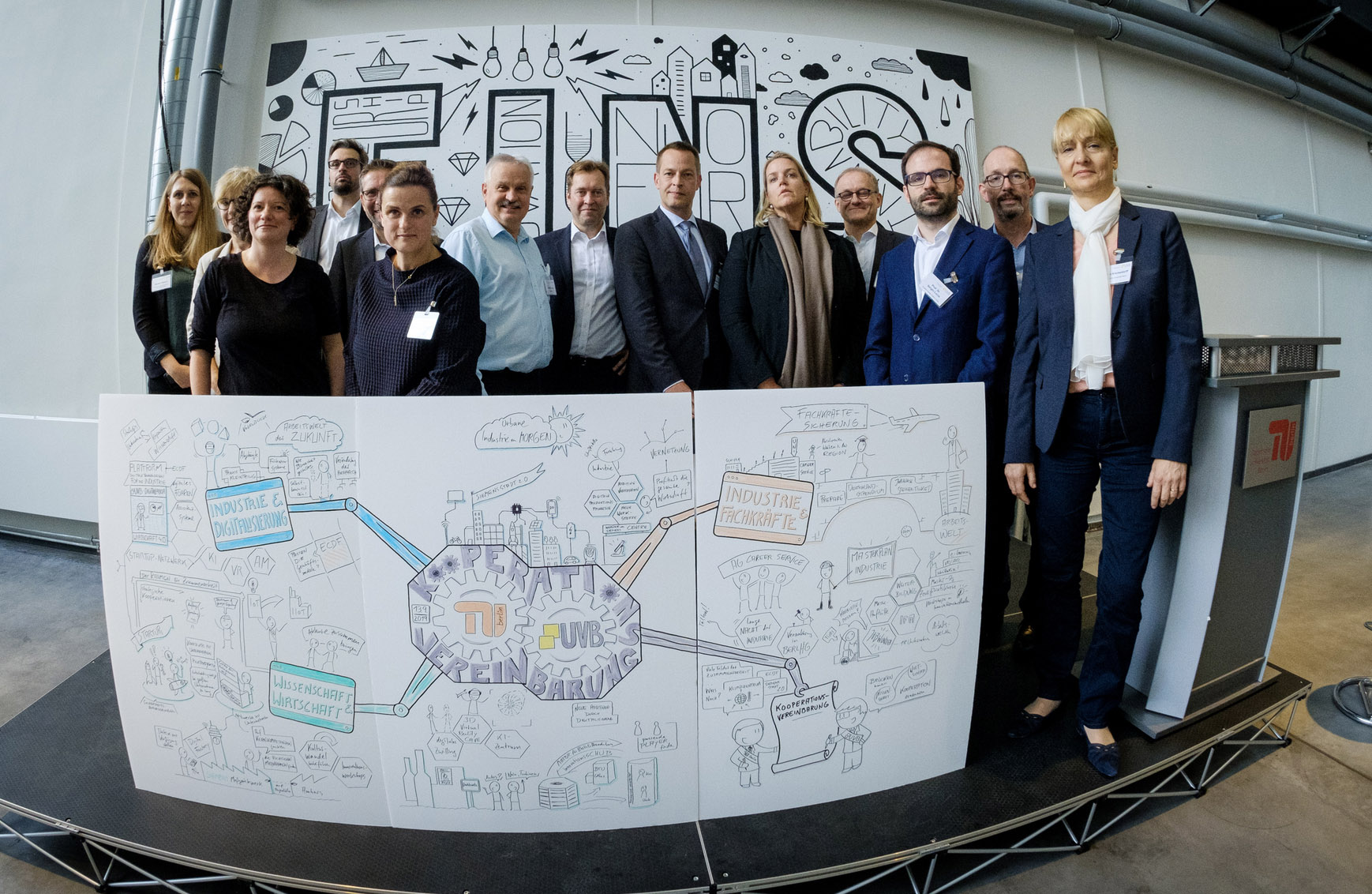Accelerating the digital transformation: TU Berlin and business associations intensify cooperation
Brain City Berlin is considered one of the leading locations in Germany working on artificial intelligence. Berlin science is an important driver of this development. To accelerate the transfer of technology between science and industry and to prepare employees more specifically for the digital transformation, the business associations of the Berlin-Brandenburg region (UVB) want to deepen their cooperation with the Technical University (TU) of Berlin.

The digital transformation is already shaping our lives. We communicate via smart phones, talk to digital assistants, and switch on the lights in our smart homes via an app. But even more so than in the private sphere, the digital transformation is affecting the world of business. The way we work is being completely rethought and production processes are being restructured to meet the current demands of Industry 4.0: they are becoming more efficient, automated, and scalable. However, digitalization remains a huge challenge, especially for small and medium-sized companies.
In the Brain City Berlin, the Berlin-Brandenburg Business Associations (UVB) are therefore seeking a closer cooperation with the Technical University (TU) Berlin. The aim of the cooperation agreement signed in mid-September is to accelerate the transfer of technology between science and industry in relation to the digital transformation. Specifically, it will promote the faster integration of new digital and sustainable technologies into production. In addition, employees will be trained and qualified for the digital workplace.
"Science and industry must work hand-in-hand so that companies in the capital region can keep their lead over the competition," said UVB President Dr. Frank Büchner. "We are relying on an even tighter transfer of knowledge with one of the best universities in Germany." And Professor Christian Thomsen, President of TU Berlin, emphasized: "It's important that the latest research in digitalization and sustainability find their way into industrial processes."
UVB and TU Berlin have been collaborating for about 30 years. The Berlin-Brandenburg region as a center for science, research, and business is highly suitable for this kind of cooperation because of the structures in place that ideally promote this collaboration, according to TU President Thomsen. As an example, he named the Einstein Center Digital Future (ECDF), which opened in 2017 for researchers to work on the complex tasks of the future in an interdisciplinary manner with the financial support of business.
According to a 2018 study by the Technology Foundation Berlin, Berlin-Brandenburg is a leading location for artificial intelligence in Germany. Currently, somewhere between 50 and 65 professors at universities and outside institutions are researching and teaching on AI-related topics in the capital region. It is estimated that 273 related research projects received federal funding in the period from 2007 to 2017. (vdo)
Facts and Figures about Artificial Intelligence in Berlin-Brandenburg*
- 223 companies working with AI are located in Berlin-Brandenburg, generating €500 million in annual turnover on AI projects each year.
- 28% of German AI companies are located in the capital region.
- 48% of German start-ups founded between 2012 and 2017 are based in Berlin-Brandenburg.
- 50–65 professors are currently researching and teaching on AI-related topics at the region's universities and research institutions.
- Interdisciplinary networks in Berlin-Brandenburg are conducting research in such topics as speech recognition systems and collaborative robots.
*Source: "Künstliche Intelligenz in Berlin und Brandenburg," Daniel Freser, Technologiestiftung Berlin, 2018